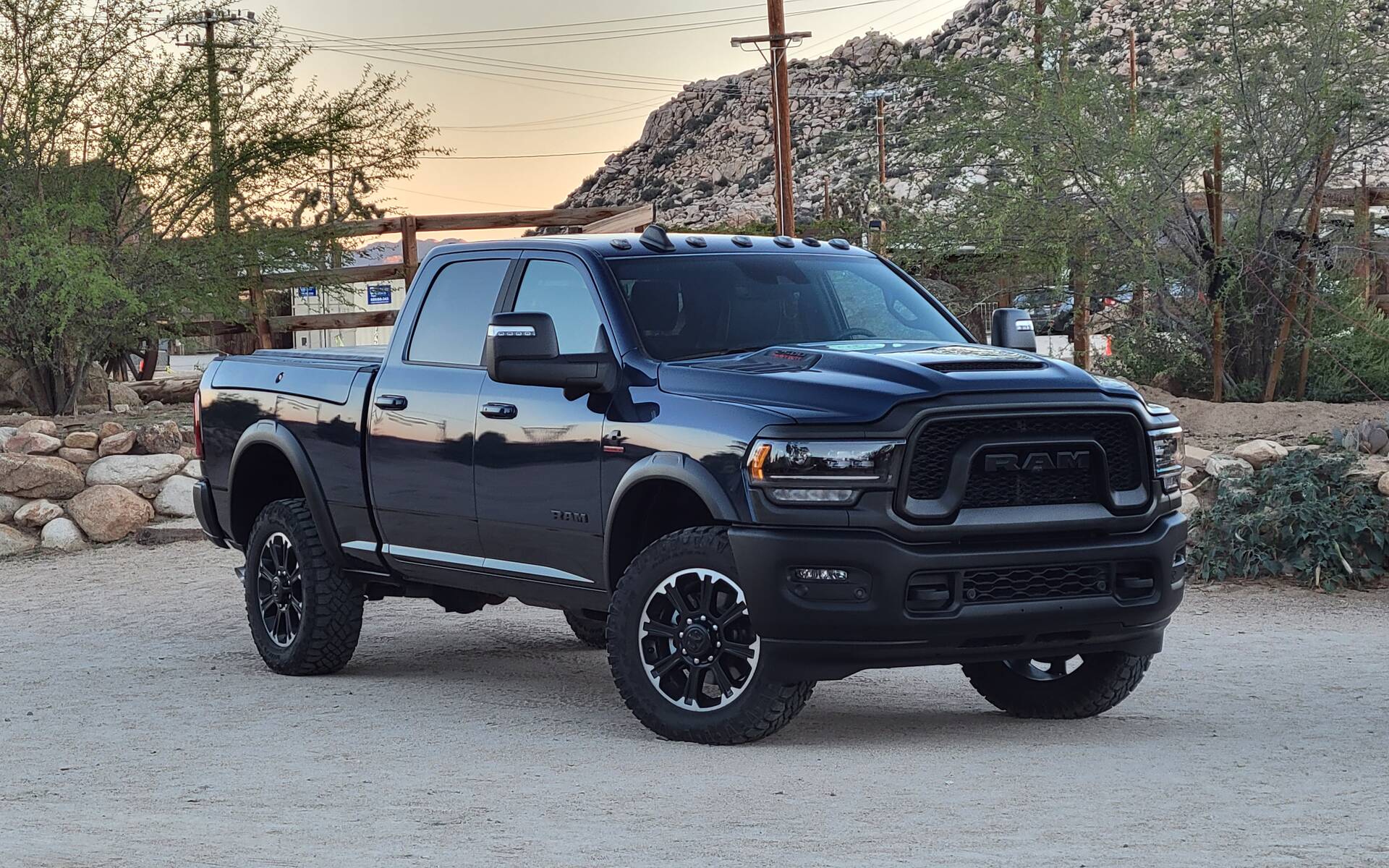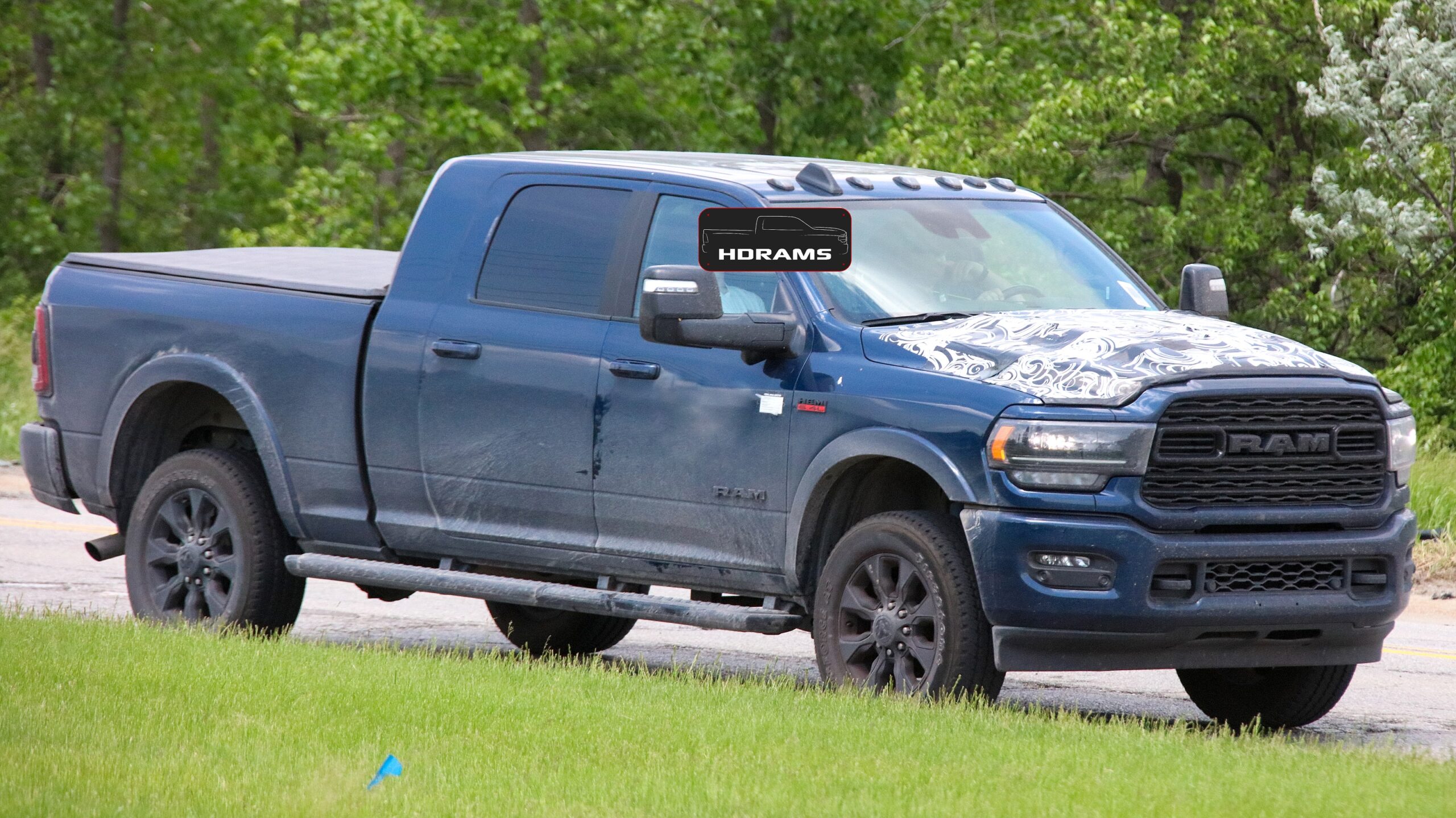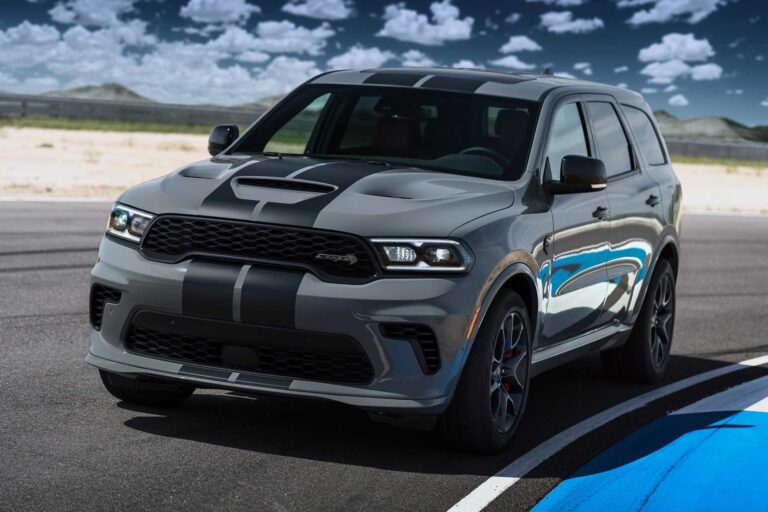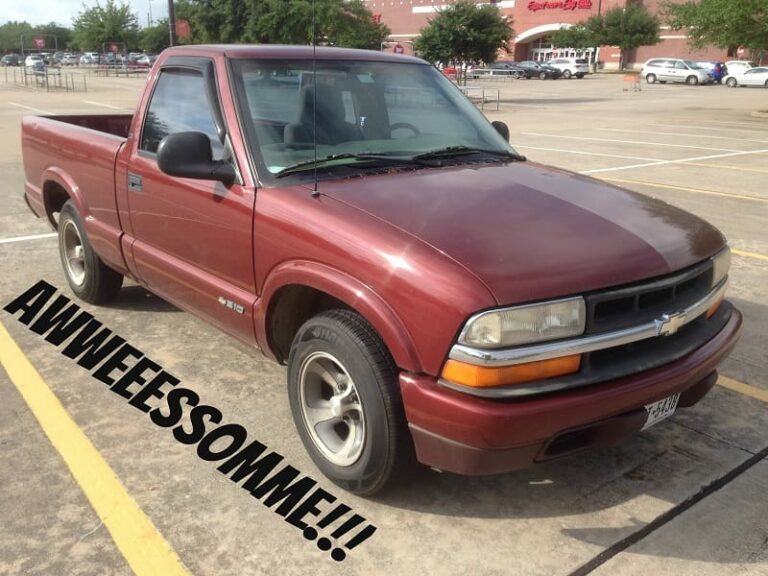2500 Series Trucks For Sale: Your Ultimate Guide to Heavy-Duty Power
2500 Series Trucks For Sale: Your Ultimate Guide to Heavy-Duty Power cars.truckstrend.com
In the vast landscape of automotive options, few vehicles command as much respect and utility as the 2500 series truck. Often referred to as ¾-ton pickups, these formidable machines bridge the gap between light-duty daily drivers and the colossal capabilities of 3500 series (1-ton) trucks. For individuals, businesses, and adventurers alike, a 2500 series truck represents a commitment to serious towing, hauling, and durability. If you’re in the market for a vehicle that can tackle demanding tasks with unwavering resolve, understanding the nuances of 2500 series trucks for sale is your first essential step.
This comprehensive guide aims to equip you with the knowledge needed to navigate the market, identify the right truck for your needs, and make an informed purchase. From understanding their core capabilities to practical buying tips and crucial considerations, we’ll delve deep into what makes these heavy-duty workhorses an indispensable asset for so many.
2500 Series Trucks For Sale: Your Ultimate Guide to Heavy-Duty Power
What Defines a 2500 Series Truck?
At its core, a 2500 series truck is designed for enhanced performance beyond what a typical half-ton (1500 series) pickup offers. The "2500" designation broadly indicates a ¾-ton class, signifying a vehicle built with more robust components to handle heavier loads and greater stresses.
Key characteristics that set 2500 series trucks apart include:
- Reinforced Chassis and Frame: Built with thicker, stronger steel to withstand greater torsional forces and weight.
- Heavy-Duty Suspension: Stiffer springs, larger shock absorbers, and often additional leaf springs or upgraded coil setups for improved load bearing and stability.
- More Powerful Powertrains: These trucks typically offer larger gasoline V8 engines or, more famously, powerful diesel engines (like Ford’s Power Stroke, Ram’s Cummins, and GM’s Duramax). These engines are engineered for maximum torque, essential for towing heavy trailers and hauling substantial payloads.
- Stronger Drivetrain Components: Upgraded transmissions, axles, and differentials capable of handling the increased power and weight.
- Enhanced Braking Systems: Larger brake rotors and calipers, sometimes with integrated exhaust brakes on diesel models, to safely stop heavier loads.

These features make 2500 series trucks the preferred choice for anyone whose demands exceed the capabilities of a 1500 series, whether it’s for commercial use, extensive recreational towing, or navigating challenging terrain with heavy equipment.
Why Choose a 2500 Series Truck? Benefits and Applications
The decision to invest in a 2500 series truck is often driven by a specific set of needs that demand more power, capacity, and durability than standard pickups can provide. Here’s why these trucks are a compelling option:

- Superior Towing Capacity: This is arguably the primary reason many opt for a 2500. With towing capacities often ranging from 15,000 to over 20,000 pounds (depending on configuration, engine, and year), they can effortlessly pull large travel trailers, fifth-wheel RVs, multi-horse trailers, or heavy equipment on utility trailers.
- Increased Payload Capacity: Beyond towing, 2500 series trucks excel at carrying heavy loads in their bed. Whether it’s a pallet of concrete, a full load of lumber, or a slide-in camper, their reinforced suspension and frame can handle thousands of pounds without compromising stability or safety.
- Durability and Longevity: Built for rigorous work, these trucks are designed to withstand significant abuse and maintain performance over many years and hundreds of thousands of miles, especially when properly maintained.
- Engine Versatility (Gas vs. Diesel): Buyers have the choice between powerful gasoline engines, which are often more affordable upfront and have lower maintenance costs, and highly efficient, torque-rich diesel engines. Diesel engines typically offer superior towing power, better fuel economy when under load, and exceptional longevity, though they come with a higher purchase price and potentially more complex maintenance.
- Versatility: While primarily known as workhorses, modern 2500 series trucks also offer impressive levels of comfort, technology, and luxury in higher trim levels, making them suitable for daily driving, family transport, and long-distance travel, in addition to their heavy-duty tasks.

Key Manufacturers and Popular Models
The market for 2500 series trucks is dominated by the "Big Three" American manufacturers, each offering a compelling lineup with unique strengths:
- Chevrolet Silverado 2500HD / GMC Sierra 2500HD: These GM twins are renowned for their powerful Duramax diesel engines paired with Allison transmissions, a legendary combination for heavy hauling. They offer a comfortable ride, advanced towing technologies, and a wide range of trim levels from basic work trucks to luxurious Denali/High Country models.
- Ram 2500: Ram’s 2500 series trucks stand out with their class-exclusive coil-spring rear suspension (on most models), providing a surprisingly smooth and comfortable ride for a heavy-duty truck, even when unladen. They are powered by the legendary Cummins turbo-diesel engine, known for its incredible torque and reliability, or powerful HEMI V8 gasoline engines. Ram also offers highly appointed interiors and innovative features.
- Ford F-250 Super Duty: The F-250 is a cornerstone of Ford’s Super Duty lineup, known for its robust construction and "Built Ford Tough" reputation. It offers powerful gasoline V8 engines (including the "Godzilla" 7.3L V8) and the formidable Power Stroke diesel. Ford emphasizes productivity features, integrated towing technology, and strong payload capacities, making it a favorite among commercial users.
Each brand brings its unique engineering philosophy and feature sets to the 2500 series segment, catering to different preferences and needs.
Important Considerations When Buying a Used 2500 Series Truck
While the allure of a powerful, capable 2500 series truck is strong, buying a used one requires careful consideration to ensure you’re getting a reliable vehicle that meets your expectations.
- Thorough Mechanical Inspection: This is paramount. Have a trusted mechanic (preferably one experienced with heavy-duty trucks) perform a pre-purchase inspection. Pay close attention to the engine (especially if diesel, checking for turbo issues, injector problems, or oil leaks), transmission (smooth shifts, no slipping), brakes, suspension components, steering, and the 4×4 system (if applicable).
- Review Maintenance History: A well-documented service history is a golden ticket. It indicates proper care and can reveal potential recurring issues or major repairs. Look for regular oil changes (especially critical for diesels), transmission fluid services, and differential fluid changes.
- Assess Overall Condition:
- Body and Frame: Check for rust, especially on the frame, rocker panels, wheel wells, and bed. Significant rust can compromise structural integrity. Look for signs of accident repair (misaligned panels, inconsistent paint).
- Interior: Examine the seats, dashboard, and controls for excessive wear, tears, or damage. Ensure all electronics (infotainment, power windows, HVAC) function correctly.
- Tires: Check tread depth and even wear. Uneven wear can indicate alignment issues or suspension problems.
- Mileage vs. Age: For heavy-duty trucks, high mileage isn’t always a deal-breaker, especially for diesel engines that are designed to last hundreds of thousands of miles if properly maintained. A lower-mileage truck that’s been neglected can be a worse investment than a high-mileage one with meticulous records.
- Intended Use and Configuration: Ensure the truck’s configuration (cab style, bed length, 4×4 vs. 2WD) matches your needs. A long bed is great for hauling, but a short bed might be more maneuverable. Crew cabs offer more passenger space but can make parking trickier.
- Gas vs. Diesel Considerations:
- Diesel: Higher upfront cost, more expensive maintenance (fuel filters, DEF for newer models), but superior torque, better fuel economy when loaded, and longer lifespan. Ideal for frequent heavy towing.
- Gas: Lower purchase price, simpler maintenance, but less towing capacity and often worse fuel economy under load. Good for occasional heavy use or lighter duties.
- VIN Check: Run a Vehicle History Report (e.g., CarFax, AutoCheck) to check for accidents, salvage titles, flood damage, odometer rollbacks, and past ownership.
- Test Drive: Drive the truck extensively. Listen for unusual noises, feel for vibrations, test the brakes under various conditions, and assess steering responsiveness. Pay attention to how the transmission shifts, both up and down.
Tips for Finding and Negotiating a 2500 Series Truck
Finding the right 2500 series truck at a fair price requires a strategic approach.
- Where to Look:
- Dealerships (New & Used): Offer certified pre-owned options, financing, and warranties, but generally higher prices.
- Private Sellers: Often more negotiable prices but no warranties and require more due diligence on your part.
- Online Marketplaces: Websites like AutoTrader, Cars.com, Facebook Marketplace, and local classifieds offer a wide selection.
- Auctions: Can yield great deals but come with higher risk and often require cash payment.
- Set a Realistic Budget: Beyond the purchase price, factor in potential maintenance, insurance, fuel costs (especially for diesels), and any accessories you might need (e.g., fifth-wheel hitch, bed liner).
- Research Market Value: Use online tools (KBB, Edmunds, NADAguides) to understand the fair market value for the specific make, model, year, mileage, and condition you’re targeting. This empowers you during negotiation.
- Negotiation Strategies:
- Be Patient: Don’t rush into a purchase. The right deal will come along.
- Highlight Imperfections: Use any flaws you find during inspection (even minor ones) as leverage for negotiation.
- Walk Away: Be prepared to walk away if the seller isn’t willing to meet a reasonable price. There are always other trucks.
- Get Pre-Approved for Financing: Knowing your budget and interest rate beforehand strengthens your negotiating position.
Potential Challenges and Solutions
While 2500 series trucks are incredibly capable, they do present a few unique challenges:
- Fuel Economy: These are heavy vehicles with powerful engines. Fuel consumption will be higher than lighter vehicles.
- Solution: Consider a diesel engine if fuel economy under load is a priority, or budget accordingly for gasoline consumption. Drive conservatively.
- Maneuverability and Parking: Their larger size can make navigating tight city streets or crowded parking lots a challenge.
- Solution: Look for models with parking sensors, rearview cameras, and 360-degree cameras. Practice driving in various conditions.
- Maintenance Costs: Heavy-duty components and diesel engines can lead to higher maintenance and repair costs than a regular car or 1500 series truck.
- Solution: Adhere strictly to the manufacturer’s maintenance schedule. Budget for preventative maintenance. Consider an extended warranty if buying used from a dealership.
- Ride Quality (Unladen): Due to their stiff suspension designed for heavy loads, 2500 series trucks can have a harsher ride when empty compared to 1500 series trucks.
- Solution: Some models (like Ram with its coil springs) offer a smoother ride. Air suspension options can also improve comfort.
Estimated Price Ranges for Used 2500 Series Trucks For Sale
The price of a used 2500 series truck varies significantly based on year, mileage, condition, trim level, engine type (gas vs. diesel), and geographical location. The table below provides broad estimated ranges for popular models. These are general guidelines, and actual prices may differ.
| Category | Estimated Price Range (USD) | Key Characteristics | Example Models |
|---|---|---|---|
| Older/High Mileage | $10,000 – $25,000 | 2005-2015 model years; 150,000+ miles; may have cosmetic wear, potentially minor mechanical issues; good for budget-conscious buyers or those needing a basic work truck. | Chevy Silverado 2500HD, Ram 2500, Ford F-250 Super Duty (older generations) |
| Mid-Range/Well-Maintained | $25,000 – $45,000 | 2016-2020 model years; 70,000 – 150,000 miles; generally good condition with regular maintenance records; solid balance of capability and value. | Chevy Silverado 2500HD, GMC Sierra 2500HD, Ram 2500, Ford F-250 Super Duty (mid-generation) |
| Newer/Low Mileage | $45,000 – $65,000+ | 2021-Present model years; under 70,000 miles; excellent condition, often with remaining factory warranty; may include advanced tech and higher trim levels; closer to new truck feel. | Latest generations of Chevy Silverado 2500HD, GMC Sierra 2500HD, Ram 2500, Ford F-250 Super Duty |
| Premium/High Trim | $60,000 – $80,000+ | Newer models (2020+) with low mileage and top-tier luxury trims (e.g., Denali, Laramie Longhorn, Platinum); fully loaded with advanced features and premium interiors. | GMC Sierra 2500HD Denali, Ram 2500 Limited, Ford F-250 Super Duty Platinum |
Note: Diesel engine options typically command a premium of $5,000 – $15,000 over comparable gasoline models, especially in newer trucks.
Frequently Asked Questions (FAQ)
Q1: What’s the main difference between a 1500 and a 2500 series truck?
A1: A 2500 series (¾-ton) truck has a heavier-duty frame, stronger suspension, larger engines (often with diesel options), and more robust components than a 1500 series (½-ton) truck. This translates to significantly higher towing and payload capacities, making 2500s ideal for serious work or heavy recreational towing.
Q2: Are diesel 2500 trucks worth the extra cost?
A2: For frequent heavy towing or hauling, yes. Diesel engines offer superior torque, better fuel economy when under load, and often a longer lifespan. However, they have a higher upfront cost and potentially more expensive maintenance (e.g., fuel filters, DEF). If your needs are occasional or lighter, a gas engine might be more cost-effective.
Q3: What should I look for during a test drive of a 2500 series truck?
A3: Pay attention to engine performance (acceleration, smooth power delivery), transmission shifts (should be smooth, no jerking or slipping), brake effectiveness, steering responsiveness, and any unusual noises (clunks, squeaks, grinding). Test all electronics, lights, and HVAC. If possible, test it with a load or on a varied road surface.
Q4: How much can a 2500 series truck typically tow?
A4: Towing capacities vary widely by year, engine, and configuration, but generally range from 15,000 pounds for older gasoline models to over 20,000 pounds for newer diesel variants equipped for fifth-wheel or gooseneck towing. Always check the specific truck’s rating on the door jamb sticker or owner’s manual.
Q5: Is a 2500 series truck suitable for daily driving?
A5: Modern 2500 series trucks, especially in higher trim levels, offer excellent comfort and technology, making them viable for daily driving. However, their larger size can make parking and navigating tight spaces challenging, and their fuel economy will be lower than a car or smaller SUV.
Q6: What’s the average lifespan of a 2500 series truck?
A6: With proper maintenance, 2500 series trucks, particularly those with diesel engines, are built to last. It’s common to see them exceed 200,000, 300,000, or even 400,000 miles. Gasoline engines also have impressive longevity but might not reach the same extreme mileages as their diesel counterparts.
Conclusion
The 2500 series truck market offers a compelling array of powerful, durable, and versatile vehicles designed to tackle the toughest jobs and biggest adventures. Whether you’re a contractor needing to haul heavy equipment, an RV enthusiast looking to tow your home-on-wheels, or simply someone who appreciates the peace of mind that comes with immense capability, a ¾-ton pickup might be your ideal partner.
By understanding their defining characteristics, weighing the benefits against potential challenges, and approaching the buying process with thorough research and inspection, you can confidently find a 2500 series truck that not only meets but exceeds your expectations. Invest wisely, maintain diligently, and your 2500 series truck will serve as a reliable, powerful workhorse for years to come.






